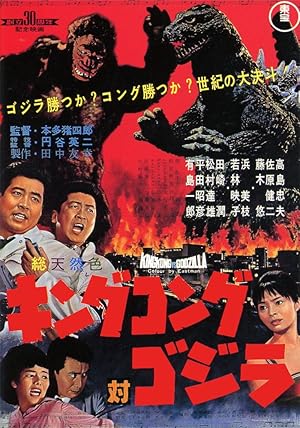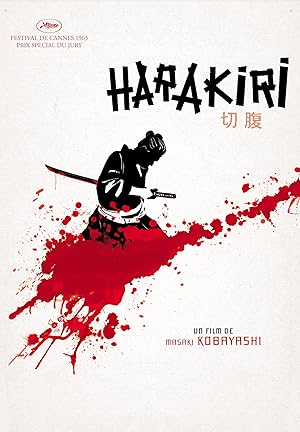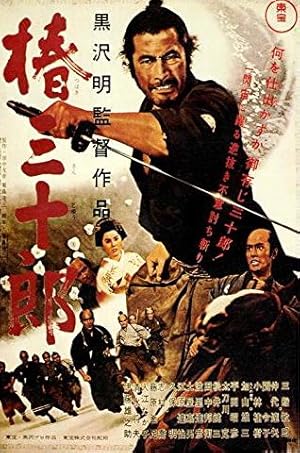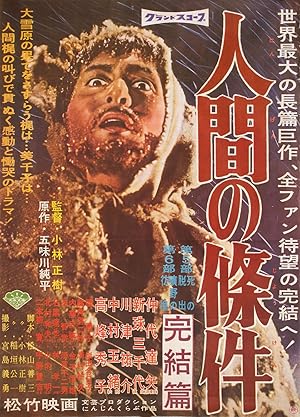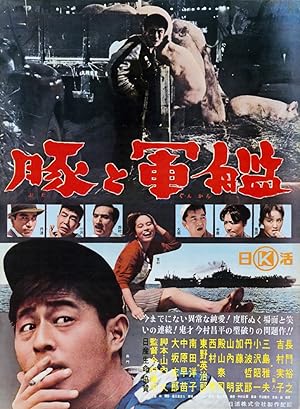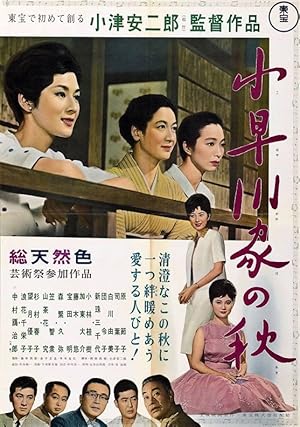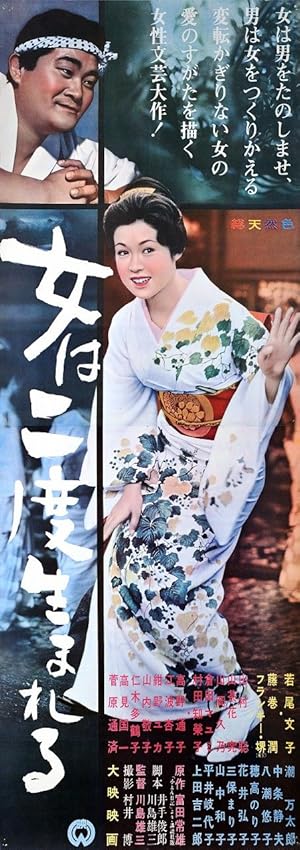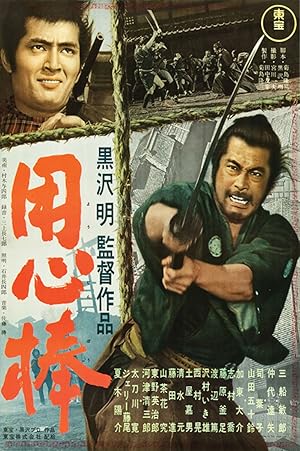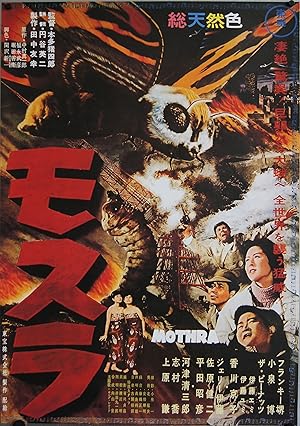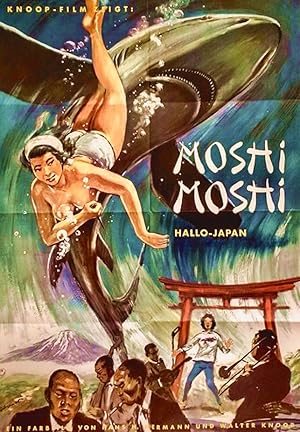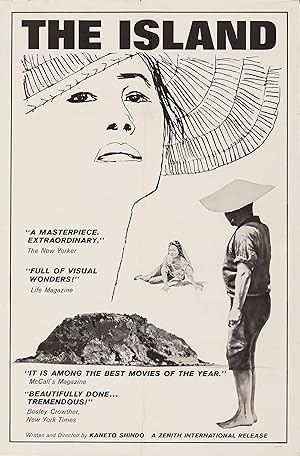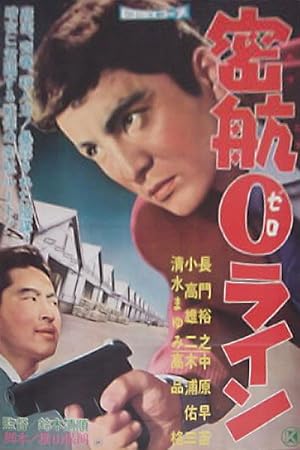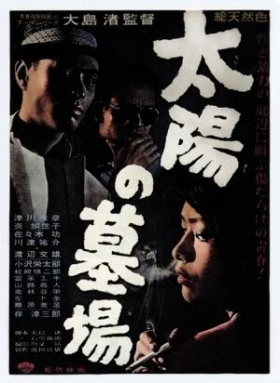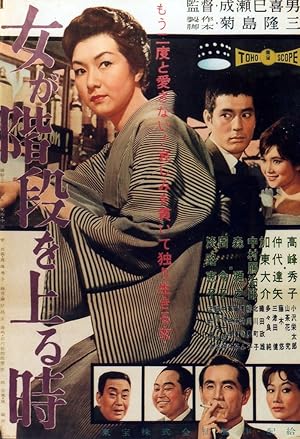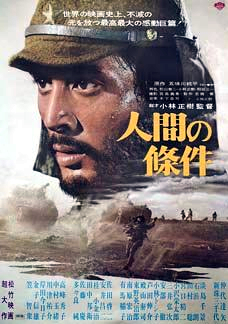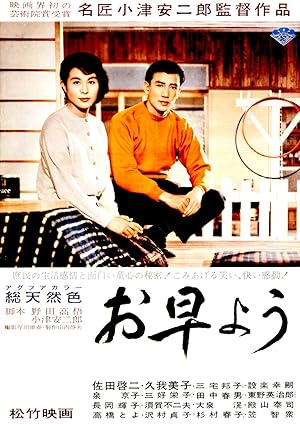Top 100 Japan movies
You are now browsing page 36, where we continue to showcase even more compelling content linked to "Japan". If you’ve already sampled a few highlights on previous pages, now is the perfect time to delve deeper into this fascinating keyword. Keep exploring and enrich your understanding!
King Kong vs. Godzilla (1962)
2
The advertising director of Pacific Pharmaceuticals, frustrated with the low ratings of their sponsored TV program, seeks a more sensationalist approach. He orders his staff to Faro Island to capture King Kong for exploitation. As Godzilla re-emerges, a media frenzy generates with Pacific looking to capitalize off of the ultimate battle.
Harakiri (1962)
2
Down-on-his-luck veteran Tsugumo Hanshirō enters the courtyard of the prosperous House of Iyi. Unemployed, and with no family, he hopes to find a place to commit seppuku—and a worthy second to deliver the coup de grâce in his suicide ritual. The senior counselor for the Iyi clan questions the ronin’s resolve and integrity, suspecting Hanshirō of seeking charity rather than an honorable end. What follows is a pair of interlocking stories which lay bare the difference between honor and respect, and promises to examine the legendary foundations of the Samurai code.
Sanjuro (1962)
1
Toshiro Mifune swaggers and snarls to brilliant comic effect in Kurosawa's tightly paced, beautifully composed "Sanjuro." In this companion piece and sequel to "Yojimbo," jaded samurai Sanjuro helps an idealistic group of young warriors weed out their clan's evil influences, and in the process turns their image of a proper samurai on its ear.
The Human Condition III: A Soldier's Prayer (1961)
0
After the Japanese defeat to the Russians, Kaji leads the last remaining men through Manchuria. Intent on returning to his dear wife and his old life, Kaji faces great odds in a variety of different harrowing circumstances as he and his fellow men sneak behind enemy lines.
Pigs and Battleships (1961)
0
In the city of Yokosuka, Kinta and his lover Haruko, both involved with yakuza, brave the post-occupation period with a goal to be together.
The End of Summer (1961)
0
The family of an older man who runs a small sake brewery become concerned with his finances and his health after they discover him visiting an old mistress from his youth.
A Geisha's Diary (1961)
0
A young girl is rigorously trained in the feminine arts so that she can become a geisha. As she struggles through life, she learns to live not just as a woman but as a complete person.
Yojimbo (1961)
3
A nameless ronin, or samurai with no master, enters a small village in feudal Japan where two rival businessmen are struggling for control of the local gambling trade. Taking the name Sanjuro Kuwabatake, the ronin convinces both silk merchant Tazaemon and sake merchant Tokuemon to hire him as a personal bodyguard, then artfully sets in motion a full-scale gang war between the two ambitious and unscrupulous men.
Mothra (1961)
0
Shipwreck survivors found on the presumably uninhabited Infant Island leads to a scientific expedition that discovers a surviving native population along with the Shobijin, tiny twin fairy priestesses of the island's mythical deity called Mothra. After the fairies are kidnapped by an exploitative businessman named Clark Nelson, Mothra sets out to rescue them.
Moshi Moshi - Hallo Japan (1961)
0
A portrait of Japan's culture and landscape, highlighting the country's contrasts.
The Naked Island (1960)
0
A family of four are the sole inhabitants of a small island, where they struggle each day to irrigate their crops.
Smashing the 0-Line (1960)
0
Katiri is a reporter so ambitiously amoral that he’ll sell out anyone—including his partner and the drug dealer he’s sleeping with—to get a scoop. But what happens when an even more ruthless female gang boss kidnaps his sister?
The Sun's Burial (1960)
0
In Osaka's slum, youths without futures engage in pilfering, assault and robbery, prostitution, and the buying and selling of identity cards and of blood. Alliances constantly shift. Tatsu and Takeshi, friends since boyhood, reluctantly join Shin's gang. Shin's an upstart and moves his gang often to avoid the local kingpin. Hanoko is a young woman with ambitions: first she's in the blood business with her father, then she joins forces with Shin. She soon breaks off that partnership, even though she's taken the sensitive Takeshi under her wing. Double crosses multiply. Those with the closest bonds become each others' murderers.
When a Woman Ascends the Stairs (1960)
0
Keiko, whom everyone calls Mama, narrates her story: she's a hostess on the Ginza, 30, a widow. She describes life's vicious cycle: acting cheerful around drunks, dressing and living well to convey confidence, needing money for these expenses and for her demanding mother and brother, and knowing she's growing older.
The Human Condition I: No Greater Love (1959)
0
After handing in a report on the treatment of Chinese colonial labor, Kaji is offered the post of labor chief at a large mining operation in Manchuria, which also grants him exemption from military service. He accepts, and moves to Manchuria with his newly-wed wife Michiko, but when he tries to put his ideas of more humane treatment into practice, he finds himself at odds with scheming officials, cruel foremen, and the military police.
Good Morning (1959)
0
A lighthearted take on director Yasujiro Ozu’s perennial theme of the challenges of intergenerational relationships, Good Morning tells the story of two young boys who stop speaking in protest after their parents refuse to buy a television set. Ozu weaves a wealth of subtle gags through a family portrait as rich as those of his dramatic films, mocking the foibles of the adult world through the eyes of his child protagonists. Shot in stunning color and set in a suburb of Tokyo where housewives gossip about the neighbors’ new washing machine and unemployed husbands look for work as door-to-door salesmen, this charming comedy refashions Ozu’s
